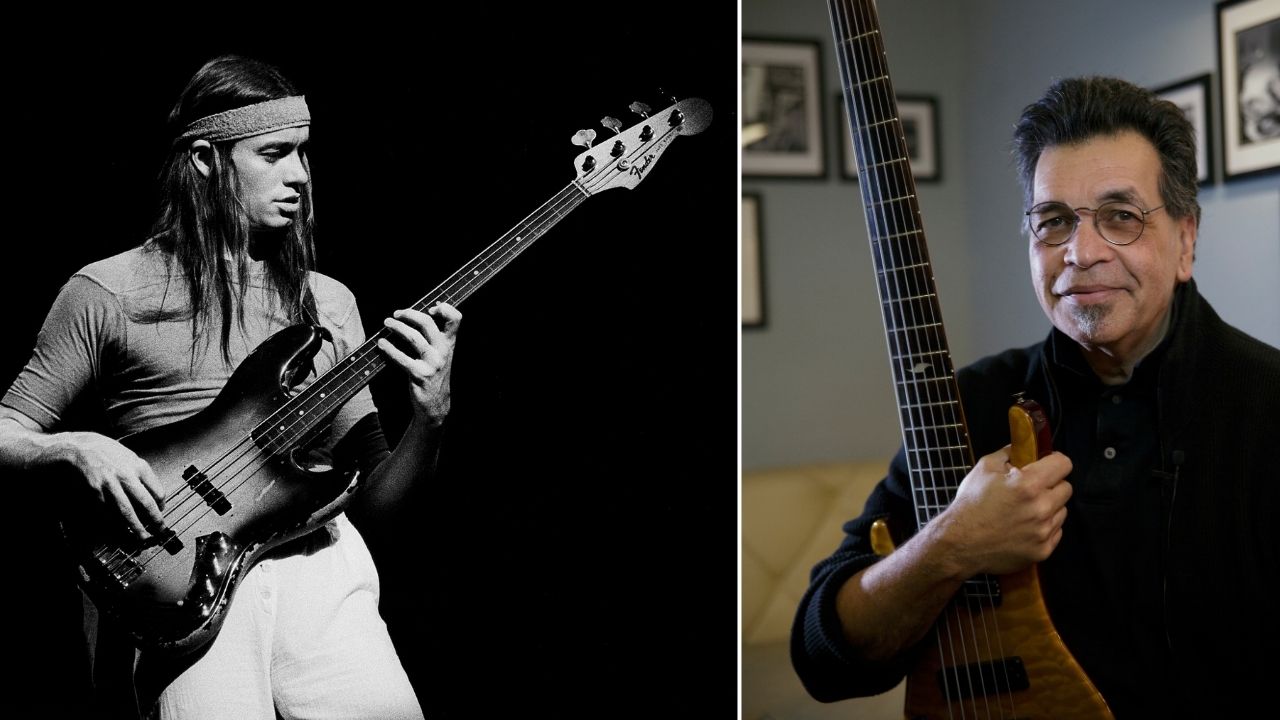How The Jam's Town Called Malice turned a cheeky Motown steal into a bona fide bass classic
Bruce Foxton on destroying Rickenbackers and the band's history of borrowing bass parts – plus, how to play Town Called Malice

In February 1982, The Jam’s Town Called Malice went straight to number one in the UK, underpinned by a classic Motown-style bassline so good that Bass Player placed it at no. 35 in our list of the top 100 best basslines ever.
The man who played it, Bruce Foxton, had grown up on Motown and soul. “My older brother Derek had been an original mod and was always playing Motown stuff,” Foxton told The Guardian. “The Malice bassline is very similar to You Can't Hurry Love by the Supremes, but it worked. When we hit that groove, you couldn't stop your foot tapping.”
Frontman and songwriter Paul Weller had also been discovering soul music. “On Jam tours, we had a DJ called Ady Croasdell, who ran a ’60s club,” said Weller. “He turned me on to underground stuff and what people call northern soul. It just blew my mind.”
The band went from punk-inspired power-pop to dancefloor-filling hitmakers. For Malice, they jammed the music in the studio. “I remember us first hitting that groove and being fired up by it,” said Weller. “Then I added the middle eight and sorted the song out, adding the organ. It was all done pretty quickly.”
In fact, Town Called Malice had two treats for bass players: a ‘Double-A’ single, the song on the other side was Precious, a funk track that bore a strong resemblance to Pigbag’s Papa’s Got A Brand New Pigbag, released the previous year. Asked about the similarities later, Weller commented: "Yeah, I nicked that."
(The bass on the Pigbag hit was played by the brilliant Simon Underwood, formerly of avant-funk post-punks The Pop Group. First released in 1981, it became a UK no.3 hit in April 1982.)
It was their modus operandi: Foxton’s bass part on 1980 single Start! owed a lot to the bassline on The Beatles’ Taxman. Just years before sampling became commonplace, The Jam were dipping into music’s past and recycling it for a new generation.
All the latest guitar news, interviews, lessons, reviews, deals and more, direct to your inbox!
“With my bass influences, I go back to the ’60s, John Entwistle and Paul McCartney,” says Foxton. “Basslines like Start! just come to you. It’s not an intentional thing. Obviously, people have said that Start! sounds like Taxman. Well, it’s not quite like Taxman, note-wise – you couldn’t sue me for it.”
Today, with a new album out – The Butterfly Effect by Bruce Foxton and Russell Hastings, his cohort in From The Jam – he’s still out there.
“I’ve still got my Rickenbackers from The Jam days,” he says. “I love the look of a Ricky, and because the neck is so slim on a 4001, my hands could go round it quite well. But it was around about the time of All Mod Cons [1978] that I tried a Precision and just loved it. It’s just the sound of a P-Bass. It just had that more punchy bottom-end. I found the Ricky quite toppy.
“In fact, it was sacrilege, but me and my guitar tech once butchered some Rickys, putting in P-Bass pickups to try to make it sound like a Precision. But all it did was screw up a lovely guitar. Probably my favourite P-Bass of all was that one I used on All Mod Cons. It was a tough decision to auction that bass in 2009, but I’d enjoyed it and I wanted someone else to enjoy it – and I got a few bob for it.
“I’ve been using Rotosound strings since day one: they’ve been very supportive and it’s a great relationship. I like the top end the strings give me, because I need clarity in those melodic lines. Four strings is enough for me. I’ve got quite small hands, which was one reason I preferred using Rickenbackers in the old days, because the necks were narrow. I could have played a Fender Jazz, I suppose, but I don’t like the word ‘jazz’…”
NME readers recently voted him the 7th most influential bass player in the world. “It was very flattering,” he says. “It’s nice to be thought of like that. I don’t quite understand it because I consider what I do quite easy and anybody could do it.”
If you think you can, here’s how to play Town Called Malice.
- The Butterfly Effect from Bruce Foxton and Russell Hastings is out now on Absolute. Read a full interview with Bruce Foxton in the new issue of Guitarist, out now and available to order online.
Tom Poak has written for the Hull Daily Mail, Esquire, The Big Issue, Total Guitar, Classic Rock, Metal Hammer and more. In a writing career that has spanned decades, he has interviewed Brian May, Brian Cant, and cadged a light off Brian Molko. He has stood on a glacier with Thunder, in a forest by a fjord with Ozzy and Slash, and on the roof of the Houses of Parliament with Thin Lizzy's Scott Gorham (until some nice men with guns came and told them to get down). He has drank with Shane MacGowan, mortally offended Lightning Seed Ian Broudie and been asked if he was homeless by Echo & The Bunnymen’s Ian McCulloch.
